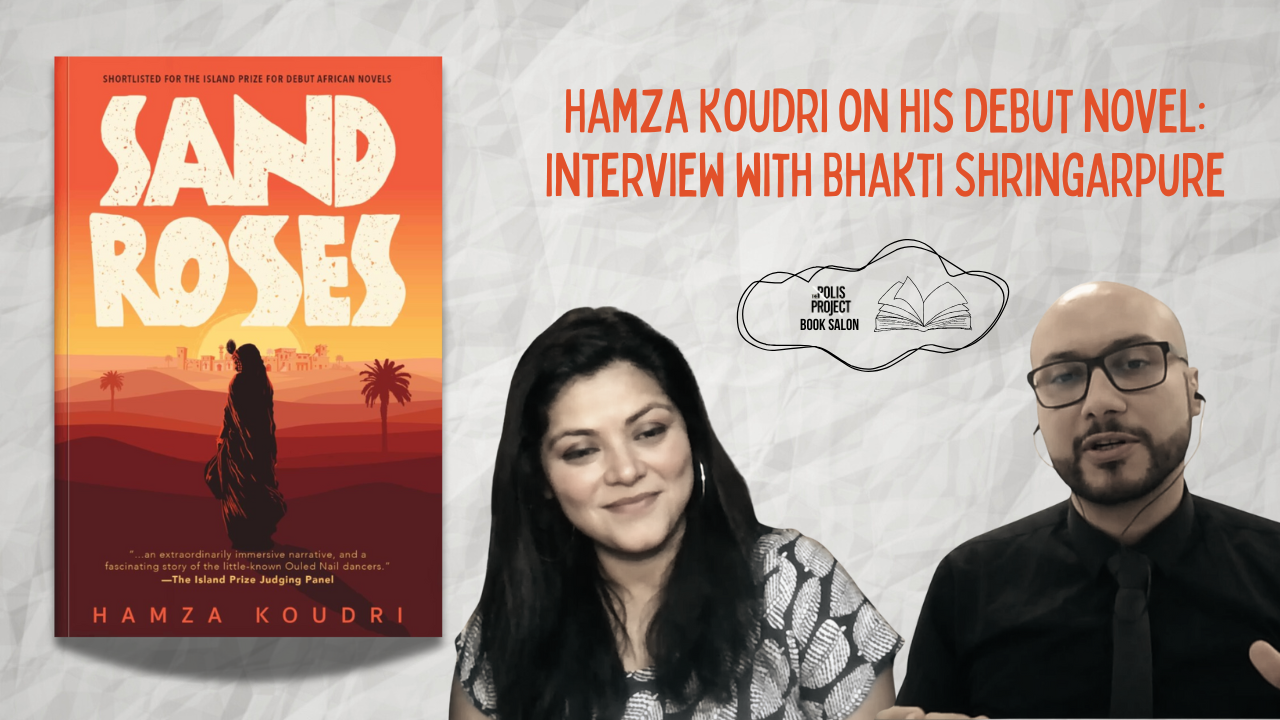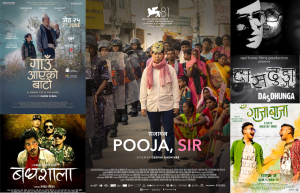
Hamza Koudri On His Debut Novel Sand Roses: In Conversation With Bhakti Shringarpure

The shocking scenes of sexual violence and murder that set Hamza Koudri’s debut novel Sand Roses in motion belie the romantic and soft impression created by the title. Sand Roses is a historical novel about the semi-nomadic Ouled Nail group in Algeria whose women are trained as dancers—but are also forced into sex work by the community at an early age. The novel follows twin sisters, dancers Salima and Fahima, who eke out a living in the town of Bousaada at the height of French colonialism, and inadvertently find themselves at the center of the violence of the French army.
A surprising aspect of the novel is that it is written in English, a unique twist in the long literary history of French and Arabic language production associated with Algeria. Koudri belongs to a small but new generation of writers who have begun to embrace the English language and culture. Yet, the novel’s concerns remain firmly Algerian, and it is situated in a distinctly anti-colonial historical moment against the French while also excavating the forgotten history of the Ouled Nail community.
Sand Roses was shortlisted for the Island Prize in 2022, a manuscript prize for first-time novelists from Africa and the diaspora. Not only did this mean that the manuscript was read by agents and editors and fast-tracked to publication but it also made it part of the ever-expanding universe of African literature.
As I grappled with the gripping but sobering work, I met the author at a book festival in Cape Town. Hamza’s personality is just as deceptive as the novel’s title and his youthful, amiable, and lighthearted manner belies the tension and tragedy expressed in his book. We joked around like old friends and the easy camaraderie continued a few weeks later when I coincidentally met him again at Nairobi’s Macondo Literary Festival in September 2024.
Hamza knew his place at the Anglo-facing, East African literary festival was atypical. The African continent’s 54 countries are not always in conversation with each other, despite the ease with which people everywhere including on the continent might refer to Africa as a literature, as a race, or as a culture. Writers from Francophone North Africa and Anglophone sub-Saharan Africa do not always find themselves in the same room, primarily because Arabic-language literature from North Africa tends to become classified as Middle Eastern literature, and ends up belonging within that regional category rather than Africa.
In my interview, I was keen to know more about the Algerian literary scene. Hamza spoke enthusiastically about the thriving arts and culture scene in Algiers where he lives. We discussed the novel and how a random podcast led him down a research rabbit hole about the Ouled Nail community about whom so little is known. The novels’ twin sister protagonists are empowered, courageous, and fierce but I found some of the graphic scenes of sexual violence hard to read. I asked Hamza how he crafted these and whether he set limits on himself about the description of violence. And lastly, we spoke about the actual desert curiosity that the novel is named after: a sand rose.
Hamza Koudri is an Algerian writer whose debut novel Sand Roses was shortlisted for the Island Prize in 2022. He holds an MA in English Literature and Civilization and has been working in education and international development since 2008. He is based in Algeiers and currently serves as the Country Director with the British Council in Algeria. Sand Roses is a historical novel about the semi-nomadic Ouled Nail group in Algeria whose women are trained as dancers—but are also forced into sex work by the community at an early age. The novel follows twin sisters, dancers Salima and Fahima, who eke out a living in the town of Bousaada at the height of French colonialism, and inadvertently find themselves at the center of the violence of the French army.
Bhakti Shringarpure is writer and editor who co-founded Warscapes magazine and is now creative director of the Radical Books Collective. She is the author of Cold War Assemblages: Decolonization to Digital and recently co-edited Insurgent Feminisms: Writing War.
Related Posts
Hamza Koudri On His Debut Novel Sand Roses: In Conversation With Bhakti Shringarpure

The shocking scenes of sexual violence and murder that set Hamza Koudri’s debut novel Sand Roses in motion belie the romantic and soft impression created by the title. Sand Roses is a historical novel about the semi-nomadic Ouled Nail group in Algeria whose women are trained as dancers—but are also forced into sex work by the community at an early age. The novel follows twin sisters, dancers Salima and Fahima, who eke out a living in the town of Bousaada at the height of French colonialism, and inadvertently find themselves at the center of the violence of the French army.
A surprising aspect of the novel is that it is written in English, a unique twist in the long literary history of French and Arabic language production associated with Algeria. Koudri belongs to a small but new generation of writers who have begun to embrace the English language and culture. Yet, the novel’s concerns remain firmly Algerian, and it is situated in a distinctly anti-colonial historical moment against the French while also excavating the forgotten history of the Ouled Nail community.
Sand Roses was shortlisted for the Island Prize in 2022, a manuscript prize for first-time novelists from Africa and the diaspora. Not only did this mean that the manuscript was read by agents and editors and fast-tracked to publication but it also made it part of the ever-expanding universe of African literature.
As I grappled with the gripping but sobering work, I met the author at a book festival in Cape Town. Hamza’s personality is just as deceptive as the novel’s title and his youthful, amiable, and lighthearted manner belies the tension and tragedy expressed in his book. We joked around like old friends and the easy camaraderie continued a few weeks later when I coincidentally met him again at Nairobi’s Macondo Literary Festival in September 2024.
Hamza knew his place at the Anglo-facing, East African literary festival was atypical. The African continent’s 54 countries are not always in conversation with each other, despite the ease with which people everywhere including on the continent might refer to Africa as a literature, as a race, or as a culture. Writers from Francophone North Africa and Anglophone sub-Saharan Africa do not always find themselves in the same room, primarily because Arabic-language literature from North Africa tends to become classified as Middle Eastern literature, and ends up belonging within that regional category rather than Africa.
In my interview, I was keen to know more about the Algerian literary scene. Hamza spoke enthusiastically about the thriving arts and culture scene in Algiers where he lives. We discussed the novel and how a random podcast led him down a research rabbit hole about the Ouled Nail community about whom so little is known. The novels’ twin sister protagonists are empowered, courageous, and fierce but I found some of the graphic scenes of sexual violence hard to read. I asked Hamza how he crafted these and whether he set limits on himself about the description of violence. And lastly, we spoke about the actual desert curiosity that the novel is named after: a sand rose.
Hamza Koudri is an Algerian writer whose debut novel Sand Roses was shortlisted for the Island Prize in 2022. He holds an MA in English Literature and Civilization and has been working in education and international development since 2008. He is based in Algeiers and currently serves as the Country Director with the British Council in Algeria. Sand Roses is a historical novel about the semi-nomadic Ouled Nail group in Algeria whose women are trained as dancers—but are also forced into sex work by the community at an early age. The novel follows twin sisters, dancers Salima and Fahima, who eke out a living in the town of Bousaada at the height of French colonialism, and inadvertently find themselves at the center of the violence of the French army.
Bhakti Shringarpure is writer and editor who co-founded Warscapes magazine and is now creative director of the Radical Books Collective. She is the author of Cold War Assemblages: Decolonization to Digital and recently co-edited Insurgent Feminisms: Writing War.
SUPPORT US
We like bringing the stories that don’t get told to you. For that, we need your support. However small, we would appreciate it.







